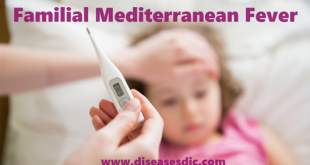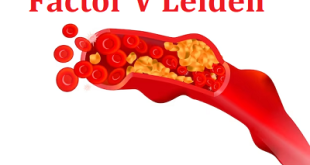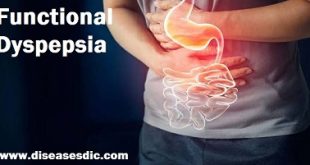Description
Women who drink alcohol during pregnancy can give birth to babies with fetal alcohol spectrum disorders, sometimes known as Fetal Alcohol Syndrome (FASD). FASD is the umbrella term for a range of disorders. These disorders can be mild or severe and can cause physical and mental birth defects.
Types of FASD
- Fetal alcohol syndrome (FAS)
- Partial fetal alcohol syndrome
- Alcohol-related birth defects
- Alcohol-related neurodevelopment disorder
- A neurobehavioral disorder associated with prenatal alcohol exposure
Pathophysiology of Fetal Alcohol Syndrome
- Alcohol crosses the placenta and rapidly reaches the fetus. Extensive studies have demonstrated equivalent fetal and maternal alcohol concentrations, suggesting an unimpeded bidirectional movement of alcohol between the 2 compartments.
- The fetus appears to depend on maternal hepatic detoxification because the activity of alcohol dehydrogenase (ADH) in the fetal liver is less than 10% of that observed in the adult liver. Furthermore, the amniotic fluid acts as a reservoir for alcohol, prolonging fetal exposure.
- The mechanism for the spectrum of adverse effects on virtually all organ systems of the developing fetus is unknown.
- Ethanol and its metabolite acetaldehyde can alter fetal development by disrupting cellular differentiation and growth, disrupting DNA and protein synthesis and inhibiting cell migration.
- Both ethanol and acetaldehyde modify the intermediary metabolism of carbohydrates, proteins, and fats. Both also decrease the transfer of amino acids, glucose, folic acid, zinc, and other nutrients across the placental barrier, indirectly affecting fetal growth due to intrauterine nutrient deprivation.
Causes
- FASDs are caused by a woman drinking alcohol during pregnancy. Alcohol in the mother’s blood passes to the baby through the umbilical cord. When a woman drinks alcohol, so does her baby.
- Alcohol enters your bloodstream and reaches your developing fetus by crossing the placenta
- Alcohol causes higher blood alcohol concentrations in your developing baby than in your body because a fetus metabolizes alcohol slower than an adult does
- Alcohol interferes with the delivery of oxygen and optimal nutrition to your developing baby
- Exposure to alcohol before birth can harm the development of tissues and organs and cause permanent brain damage in your baby
Risk factors of Fetal Alcohol Syndrome
The more alcohol you drink during pregnancy, the greater the chance of problems in your baby. There’s no known safe amount of alcohol consumption during pregnancy.
- You could put your baby at risk even before you realize you’re pregnant. Don’t drink alcohol if:
- You’re pregnant
- You think you might be pregnant
- You’re trying to become pregnant
Symptoms
A baby exposed to alcohol in the womb may have:
- The head that’s smaller than average
- Poor growth – they may be smaller than average at birth, grow slowly as they get older, and be shorter than average as an adult
- Distinctive facial features – such as small eyes, a thin upper lip, and a smooth area between the nose and upper lip, though these may become less noticeable with age
- Movement and coordination problems, known as cerebral palsy
- Learning difficulties – such as problems with thinking, speech, social skills, timekeeping, maths or memory
- Mood, attention or behavioral problems – such as autism-like behavior or attention deficit hyperactivity disorder (ADHD)
- Problems with the liver, kidneys, heart or other organs
- Hearing and vision problems
These problems are permanent, though early treatment and support can help limit their impact on an affected child’s life.
Complications of Fetal Alcohol Syndrome
- Kids with fetal alcohol syndrome share certain facial features such as small eye openings, a thin upper lip, and a smooth philtrum (the groove between the nose and upper lip). Other problems include:
- Poor growth. Newborns may have low birth weights and small head sizes. They may not grow or gain weight as well as other children and may be short as adults.
- Birth defects. Developing babies may have heart, bone, and kidney problems. Vision problems and hearing loss are common.
- Seizures and other neurologic problems, such as poor balance and coordination.
- Delayed development. Kids may not reach milestones at the expected time.
Behavioral problems. Babies may be fussy or jittery and have trouble sleeping. Older children and teens may have:
- A lack of coordination and poor fine motor skills
- Poor social skills (difficulty getting along with friends and relating to others, etc.)
- Learning difficulties, including poor memory, difficulty in school (especially math), and poor problem-solving skills
- Behavioral problems such as hyperactivity, poor attention and concentration, stubbornness, impulsiveness, and anxiety
- Children with other FASDs have many of the same problems, but usually to a lesser degree.
Diagnosis and Test
Diagnosing fetal alcohol syndrome requires expertise and a thorough assessment. Early diagnosis and services can help improve your child’s ability to function.
To make a diagnosis, your doctor:
- Discusses drinking during pregnancy. If you report the timing and amount of alcohol consumption, your obstetrician or other health care provider can help determine the risk of fetal alcohol syndrome. Although doctors can’t diagnose fetal alcohol syndrome before a baby is born, they can assess the health of the mother and baby during pregnancy.
- Watches for signs and symptoms of fetal alcohol syndrome in your child’s initial weeks, months and years of life. This includes assessing physical appearance and distinguishing features of your baby and monitoring your child’s physical and brain growth and development.
The doctor also may assess for:
- Cognitive ability and learning and language development difficulties
- Health issues
- Social and behavioral problems
Treatment and Medications
Treatment focuses on controlling symptoms, improving quality of life, and fostering independence.
Early intervention programs are essential in reducing some of the effects of FASDs and preventing some of the secondary problems that arise with FASD.
A team approach, including a special education teacher, speech therapist, psychologist, and physical and occupational therapists, is often required to ensure comprehensive care.
Other services that can be effective include:
- Medication to address symptoms
- Services in school to help with learning disabilities and problematic behaviors
- Mental health care
- Medical care for physical health problems
- Training for vocational and life skills
- Family counseling to help parents and other family members
- Alcohol treatment as necessary
It is also important to address the mother’s alcohol problem as early as possible into the pregnancy. A woman who has or suspects that she has a drinking problem should speak with her obstetrician and seek help for alcohol or substance abuse.
Prevention of Fetal Alcohol Syndrome
- Using alcohol during pregnancy is the leading cause of preventable birth defects, developmental disabilities, and learning disabilities. The only way to prevent FAS is for a woman to avoid drinking alcoholic beverages during pregnancy.
- Women should also not drink alcohol if they are sexually active and not using effective birth control. It can take 4 to 6 weeks before a woman knows she is pregnant, during which time a developing fetus could be exposed to alcohol.
- If a woman has already consumed alcohol during pregnancy, it is never too late to stop. Brain growth in the fetus takes place throughout pregnancy, so stopping alcohol consumption as soon as possible is always better than not stopping at all.
- Lastly, once the baby is born a mother should not drink alcohol during the entire period in which she is breastfeeding. This is because alcohol will appear in breast milk. Although this is not directly linked to FASDs, alcohol in breast milk can hurt a child’s development and cause problems with sleep and learning.
 Diseases Treatments Dictionary This is complete solution to read all diseases treatments Which covers Prevention, Causes, Symptoms, Medical Terms, Drugs, Prescription, Natural Remedies with cures and Treatments. Most of the common diseases were listed in names, split with categories.
Diseases Treatments Dictionary This is complete solution to read all diseases treatments Which covers Prevention, Causes, Symptoms, Medical Terms, Drugs, Prescription, Natural Remedies with cures and Treatments. Most of the common diseases were listed in names, split with categories.








what about man who is alcoholic having regular sex with her partner is it possible effect on seman
Please what about men on there own side effects
Alcohol can interfere with the function of reproductive organs and cause impotence, infertility, and reduce male secondary sexual characteristics. Since the fetus is directly connected with the alcoholic mother the alcohol passes through the placenta to the brain.
can man who drink alcohol and sex with his pregnant woman get effect on the child
Definitely, genetic disorders will occur.
how possible is it that a drunkard man’s semens affects the development of a fetus
Scientists found that toxic chemicals can damage sperm, which then pass altered genes onto babies.
i need someone to direct me on how i can get tested to know for sure if i have fetwl alcohol syndrome please
Please consult a doctor to diagnose the problem.